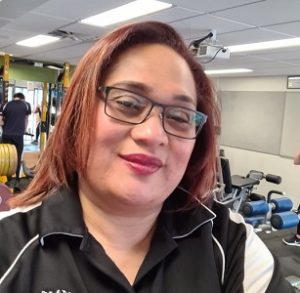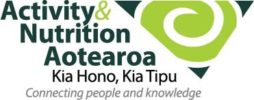27 October 2020
Soana is a dietitian consultant and is completing her Doctor of Health Science at Auckland University of Technology (AUT).
I was born in Tonga and came to New Zealand for my education and to train as a dietitian. After graduating in 1993 I went back to Tonga to work in the Ministry of Health. Nutrition and dietetics cover a wide range of public health, health promotion, health education and community development programmes. I assisted with the establishment of the Centre for Diabetes and Cardiovascular Diseases programme at Vaiola Hospital.
In 2002 I migrated back to New Zealand and have worked as a clinical dietitian in Pacific primary health, the National Heart Foundation and for ProCare Health Ltd. I’m also involved in a lot of church and community programmes on a voluntary basis.

I’m doing my doctorate in health science, based on food and Type 2 Diabetes Mellitus (T2DM). My research is with the Tongan leaders – church, community and professionals. In the talanoa, we talk about issues such as, how does diabetes impact on their lifestyle, what are the challenges of being diagnosed with T2DM, and what are the factors that determine food practices and diabetes management? Health practitioners talk about self-managing diabetes, but Tongans live within a family, church, community context and have other priorities.
One of the key things I’m interested in is, ‘how can we make the food information relevant to the context of life in New Zealand?’ When a person becomes diabetic, there are many complex issues to consider – family, community, church, culture and what we value as a Tongan. We are primarily concerned with our spiritual wellbeing and how we connect with family; other matters that are important and physical health is secondary to this. Tongan society is more communal than individual. Tongan people don’t want to be palangi; if they eat vegetables, they got asked, ‘you want to be a palangi!’ This is a challenge for me as a dietitian as we know how good vegetables are for you.
I come from a strengths-based focus; food is provided for us to nourish ourselves. There is so much more to food than just source of nutrients. Sometimes it’s the amount, the time we eat, or how many times we eat. I’m aware and I don’t want to take away treats or pleasures for people. Treat is an interesting aspect; in Tonga we might feast once a month. In New Zealand, we can have a feast every weekend or attend two to three occasions in one weekend. Our family meal can be a daily feast and we love our food. Our people know what to do, they know to eat more fruit and vegetables, eat less salt and fat. But we need a supportive system in place as we struggle to transform our knowledge into action.
I encourage people to put effort into their quality of living. I believe in people’s ability to change. It may not be the right time now, but it’ll come when it’s right for them; you can’t force them.
Many Pacific people don’t know what a dietitian is, however, they are very supportive of education. Under-fives are well support about healthy eating, but there’s no consistent message through to primary and high school years. Children need a pathway to keep being healthy, then they’ll maintain an interest and might look for food and nutrition as an option for further study.
We must create career pathways and the workforce has to be aligned with training. There may be lots of Pacific public health students at University, but they don’t really know what they want to do for a job. When we grow up in Tonga, there are a few traditional careers we know of but In New Zealand there are so many choices including Allied Health. People may think they don’t need to study about food as they know what to eat. Dietitian is a New Zealand Registered professional and a health priority career.
My work is all-hours. It’s not only that you’re expected to deliver your career but also to be available to your community. The good thing about this is you’re respected and appreciated as a trained dietitian and your lived experience is important. As a Pacific dietitian, our people need us and so we can come and talk about things that we know is the reality because we live it.
The key for us is trying to translate the scientific and technical information into a knowledge that’s appropriate for our people. People may know what’s best for them, we can provide guidance for everyday life. And we can work to remove the barriers and create supportive environments, such as policies to promote and sustain healthier food choices. That’s why public health is so important.

